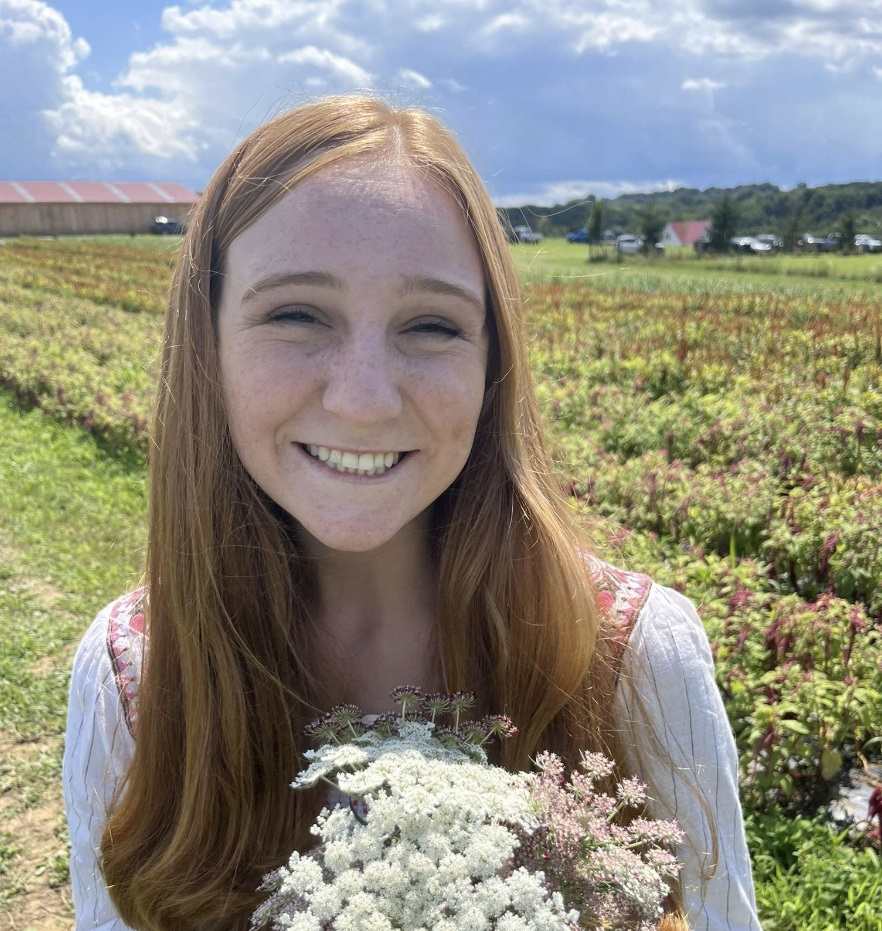VOLAR: Translating Needs Into Action
Editor’s Note: Earlier versions of this article appeared in our print magazine, Accolades, and online.
By many measures, Raleigh is one of America’s fastest-growing cities.
Student volunteers Wesley Brown, left, and Stephanie Evans helped translate at the 2015 Day of the Dead 5K in downtown Raleigh. Photo courtesy of VOLAR.
Hispanics factor among the reasons for that growth: According to U.S. Census data, the percentage of people identifying as Hispanic or Latino in Raleigh grew from 7 percent to 11.4 percent between 2000 and 2010.
With that explosive growth comes new challenges. New Spanish-speaking residents can struggle to interact with schools, government agencies and even social service providers.
Aware of these challenges, faculty within NC State’s Department of Foreign Languages and Literatures were also hearing requests from students who wanted to practice their Spanish outside the classroom.
With the help of a $10,000 NC State seed grant, Associate Professor Shelley Garrigan and Senior Lecturer James McConnell created VOLAR (Voluntarios Ahora en Raleigh). The organization’s name also means “to fly.”
“There wasn’t a direct connection between our pool of willing Spanish-speaking student volunteers and organizations who needed our help,” McConnell said. “We created VOLAR to organize and centralize our resources so we could respond to the community’s needs.”
VOLAR works with a variety of schools and nonprofits, the city of Raleigh’s Parks and Recreation Department and the Mexican Consulate of Raleigh.
Volunteering with VOLAR is comparable in some ways to studying abroad in a Spanish-speaking country. It also helps students who have studied in a Spanish-speaking country keep up their language skills once they come back.
— VOLAR coordinator Debbie Kane
Student volunteers translate at parent-teacher conferences, help patients navigate their way through community clinics and mentor Hispanic children in after-school programs.
Amanda Smith is double majoring in Spanish and international studies. Through VOLAR, she volunteers at the Urban Ministries Center’s Open Door Clinic, where she walks clients through eligibility documentation required for medical services.
“We cover questions about their jobs, family, resources and health,” Smith said. “It’s much more of a conversation than a Q&A. You have to be attuned and make sure you’re not missing important details.”
Smith said her Spanish has improved exponentially as she has volunteered. “Having conversations improves your fluency very quickly,” she laughed. “And it is gratifying to earn our clients’ trust, to listen to their problems and point them toward resources.”
“Volunteering with VOLAR is comparable in some ways to studying abroad in a Spanish-speaking country,” said VOLAR coordinator Debbie Kane. “It also helps students who have studied in a Spanish-speaking country keep up their language skills once they come back.”
Ruth Gross, head of the Department of Foreign Languages and Literatures, is a strong advocate for the program. “Immersive projects like VOLAR are what we’re all about,” she said. “Our students don’t just learn about languages and cultures in the classroom. They take what they’re learning out into the world. They make a difference.”
Amanda Smith echoes those thoughts.
“We’re not just majoring in something to get a job,” Smith said of herself and her fellow VOLAR volunteers. “We’re applying what we’re learning in the real world to help people. It’s a powerful experience.”
For more information, visit fll.chass.ncsu.edu/volar/.
- Categories:



